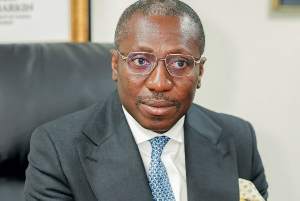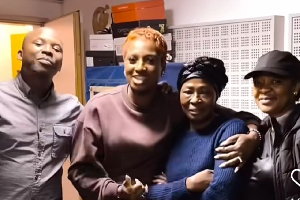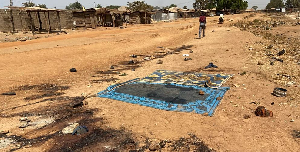General News of Saturday, 4 January 2014
Source: radioxyzonline
Kofi Annan tackles narcotics trade in West Africa
Former UN Secretary General Kofi Annan says his foundation intends working closely with the West Africa Commission on Drugs (WACD) this year toward addressing the “growing drugs problem in West Africa”.
The United Nations Office on Drug (UNODC) estimates the drug trade through West Africa is now worth 800 million USD a year.
In response, the WACD has carried out visits to Senegal, Ghana, Guinea-Bissau and Mali, and has also commissioned reports on drug-trafficking and its effect on governance, health and security in the sub-region.
Mr Annan's foundation said on his facebook page that a report to that effect will be published in March/April 2014.
Think Africa Press last year reported that the trans-shipment of illicit narcotics from Latin America through to West Africa and onwards to Europe has increased significantly in recent years.
“Since 2008, the volume of cocaine transiting through West Africa was roughly 50 tonnes a year and its annual worth estimated at US$2 billion”.
It said: “Nearly 50% of all non-US-bound cocaine, or about 13% of all global flows, is now believed to be smuggled through West Africa”.
West Africa’s geographical proximity to European markets - Just six hours away from Europe, and about 1,600 miles across the Atlantic from Latin America - makes it strategically well-located for drug-smuggling purposes.
Security Analyst Dr Kwesi Annin who is with the Kofi Annan International Peace Keeping Centre (KAIPTC) in Accra, Ghana, has always made the point that apart from West Africa becoming a major trans-shipment zone for narcotics, local production and consumption is also on the rise.
A June 2013 report by the Africa Centre for Strategic Studies by Senior Diplomatic Advisor David E. Brown entitled: “The Challenge of Drug Trafficking to Democratic Governance and Human Security in West Africa” said: “West Africa is under attack from international criminal networks that are using the sub-region as a key global hub for the distribution, wholesale, and increased production of illicit drugs”.
Brown further wrote that: “While West African states have made remarkable progress in democratic and economic development over the past decade, the insidious effects of narcotics trafficking have the potential to reverse many of these gains,” said the report.
The report said: “The proceeds of drug trafficking, by far the most lucrative transnational criminal activity in illicit economies, are fueling a dramatic increase in narco-corruption in the region, allowing drug traffickers to stage coups d’état, hijack elections and co-opt or buy political power.”
Key actors in relation to West Africa’s drug trafficking network
The most important of these international criminal networks are from Latin America - primarily from Colombia, Venezuela, and Mexico - partnering with West African criminals.
These criminals, particularly Nigerians and Ghanaians, according to the report, have been involved in the global drug trade for several decades, first with cannabis and later with heroin.
It said: “There is also increasingly strong evidence linking terrorist organisations or state sponsors of terrorism to the West Africa drug trade, including Colombia’s Revolutionary Armed Forces of Colombia (FARC), al-Qaeda in the Islamic Maghreb (AQIM), Hezbollah (allied with elements in the Lebanese diaspora), Venezuela, and Iran”.
“These criminal and terrorist groups are also a threat to U.S. national security, because the illicit profits earned by Latin American drug cartels operating in West Africa strengthen the same criminal elements that traffic drugs to North America, and the same North African and Middle Eastern terrorist groups and nations that target the United States”, Brown warned.
In late January 2013, Ghana’s Vice-President Kwesi Amissah-Arthur inaugurated the West Africa Commission on Drugs. It was convened by Kofi Annan, and chaired by former Nigerian president Olusegun Obasanjo.
The commission aims to examine ways and means of combating drug trafficking and its effects in the West African sub region.












